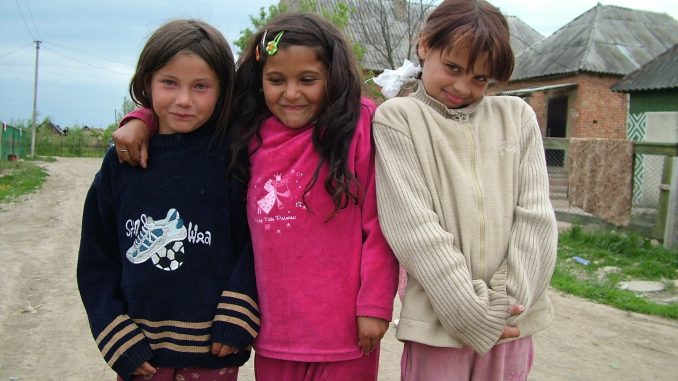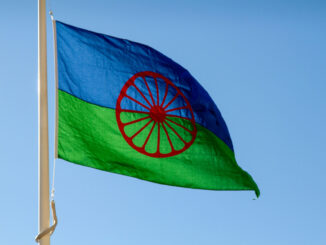
| Today, on International Romani Day, the European Roma Rights Centre (ERRC), Hope and Homes for Children, and Eurochild call on European states to commit to closing down institutions for children, and providing appropriate child and family support services for Romani children who are overrepresented in state care. The new European Union Strategy on the Rights of the Child states that all children, including those with disabilities and from disadvantaged groups, have an equal right to live with their families and in a community. Yet in many countries throughout Europe, Romani children are routinely removed from their families and placed in children’s homes at a disproportionate rate compared to the rest of the population. Research in Bulgaria, the Czech Republic, Hungary, Italy, Romania and Slovakia showed that Romani children can make up between 20-80% of children in care institutions due to institutional biases, discrimination, and the illegal practice of removing children on the basis of poverty. This is a long-standing issue, which in light of the new strategy on the Rights of the Child, the new EU Roma Strategic Framework, and the EU anti-racism action plan, needs to be urgently addressed. The organisations call on European Union institutions to continue to support member states, enlargement, and neighbourhood countries to break the cycle of poverty, combat discrimination, and promote national strategies to speed up de-institutionalisation reform, including by using EU funds. The organisations call on national governments, in countries inside and outside of the EU, to commit to eliminating institutional care and investing in accessible social support mechanisms, preventative measures, and family-based care for those children whose best interest is to be removed from their families of origin. The ERRC is bringing legal complaints in seven countries (Bulgaria, the Czech Republic, Moldova, North Macedonia, Romania, Slovakia, & Ukraine) which are institutionalising young children and discriminating against Romani families. “We see the existence of these state homes as a form of violence against young children, and the discriminatory practice of filling them with Romani kids as a form of racist violence” said ERRC President, Đorđe Jovanović. “These countries have made promises to close their institutions but progress has been too slow. If they refuse to modernise their care system, then legal action is the only option.” The legal complaints are being taken before national equality bodies, ombudsperson’s offices, and international bodies such as the European Committee of Social Rights. The complaints are based on research carried out mostly in 2020 and 2021 into the overrepresentation of Roma in state care. They are designed to hold states accountable for their obligations under international law to respect the right of the child to family relations, and to ensure that the best interest of the child prevails at all times. “Any form of institutionalisation based on discrimination is a breach of human rights”, said Mark Waddington CBE, Chief Executive Officer at Hope and Homes for Children. “We are working tirelessly across the world to ensure that no child ever suffers the harm of institutions and instead grows up in a loving family. It’s essential that European states act now to do the same”. Institutionalisation has devastating emotional and developmental effects on children, especially their physical growth, cognition, and attention, as well as their ability to form attachments. The effects of institutionalisation on infants – particularly in the early stages of life – can be largely irreversible. Institutionalisation has an especially negative effect on Romani children who leave care stigmatised both for their ethnicity and for being an ‘institution child’. The chances of children being reunited with their family of origin drop exponentially with every year in care, as do their chances of being adopted. The adoption of Romani children living in institutions is almost non-existent, due to societal racism and a lack of parents willing to adopt Roma in many countries. A human rights-compliant response to the existing situation of Romani children in state care calls for the total elimination of institutional care, and the development of appropriate child support services across Europe. We call on states to provide full and adequate protection to Romani children and families at risk of separation, to fully ensure that child removal on the basis of poverty is prohibited in law and in practice. This pressrelease is also available in Bulgarian, Macedonian, Romanian, Slovak and Ukrainian. Jonathan Lee Advocacy & Communications Manager European Roma Rights Centre jonathan.lee@errc.org +36 30 500 2118 Michela Costa Director of Global and EU Advocacy Hope and Homes for Children michela.costa@hopeandhomes.org Ally Dunhill Head of Advocacy Eurochild Ally.Dunhill@Eurochild.org +32 02 211 0558 © ERRC 2021. All rights reserved. |
Redaktionen
redaktionen@dikko.nu
Att vara en oberoende tidning kostar pengar så vill du hjälpa oss med att betala vårt fika får du gärna swisha en slant till 123 242 83 40 eller bg: 5534-0046
Vill du annonsera eller sponsra, synas eller höras i våra media?
Kontakta oss på redaktionen@dikko.nu
eller ring 0768 44 51 61
IBAN: SE19 9500 0099 6042 1813 4395
BIC: NDEASESS



